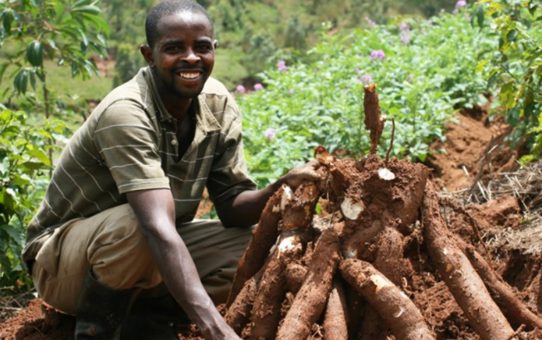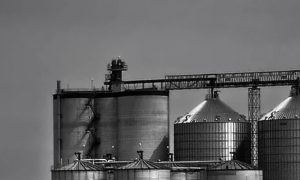Establishment of ethanol plants, others excite cassava farmers, boost incomes

The rising competition for cassava for ethanol production and industrial uses is driving up prices for garri and other cassava products in Nigeria. Garri prices have soared over 50%, with a cup now costing N800. Prof. Kola Adebayo from FUNAAB highlights the booming demand from food processing and ethanol industries. Dr. Paul Ilona notes that increased demand across the cassava value chain has led to these price hikes, despite expanded cultivation efforts.
The prices of cassava will continue to rise as more firms compete to acquire the food item for ethanol production and other industrial uses. This imbalance is said to be driving prices of garri and other derivatives from cassava higher as firms are willing to pay more to secure cassava, considered a major raw material, The Nation learnt.
For instance, price of cassava flakes, popularly known as garri and rice have recorded more than a 50 per cent increase in most parts of the country with cup of garri, which sold for N150, now goes for N800 while a five litre paint bucket is sold for between N4,000 and N4, 300.
The price hike is not limited to only garri; it has also negatively impacted the prices of other by-products of cassava such as flour, fufu and starch, among others, which have become very scarce and expensive. The problem has been linked to scarcity of cassava, which has now become a goldmine, as its price increases on a daily basis.
Speaking with The Nation, the Deputy Vice-Chancellor (Development) Federal University of Agriculture, Abeokuta (FUNAAB), Prof Kola Adebayo, noted that the cassava industry is enjoying huge demand from both domestic and industrial consumers, especially the food processing and ethanol industries.
Apart from producers of native starch, he noted, for cassava starch slurry from food and drinks processors, paper manufacturers, and ethanol distillers. As demand for cassava grow steadily and prices rise, he said farmers are expanding areas under cultivation allowing operators to remain in profit.
In addition to being consumed directly in households and in the manufacture of animal feed, he said, cassava is also used domestically as an input into other industries, including the processing and production of food and beverages, medicines, cosmetics, chemicals, and alcohol.
In an interview with The Nation, former Country Manager, HarvestPlus Nigeria and West Africa, Dr Paul Ilona, noted that demand for cassava has grown strongly thanks to its many industrial uses.
His words: “It has to do with demand. Once demand increases, invariably you will have a price rise.it is a normal economic principle. If you look at the different demand along the cassava value chain you will realise that it is not just the ethanol sector.’’.Clearly cassava is a major staple- you have fufu and all that. As at last year, the first increase we had was in the price of rice. The price of rice went up considerably, making people shift to garri. By shifting they increased the price of garri. Garri prices also went up. When the government puts in a catalyst in the system it drives others. The primary driver of increase in products today is the rise in rice prices. This made most Nigerians shifted to locally available products. As demand increased prices shot up.” He, however, expressed the optimism that the situation would be better since more people have embarked on cassava farming.
Source Link: https://thenationonlineng.net/establishment-of-ethanol-plants-others-excite-cassava-farmers-boost-incomes/














